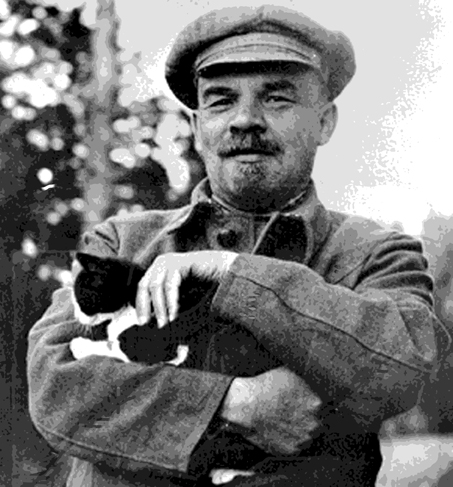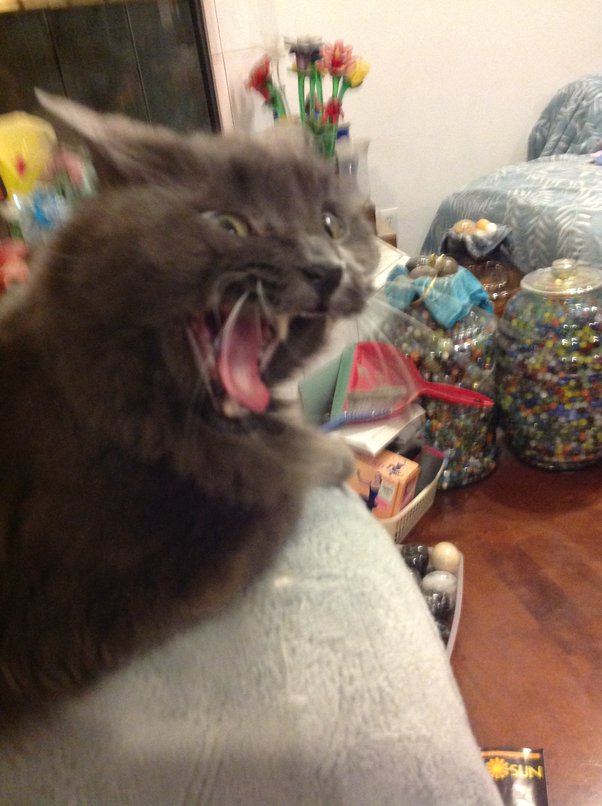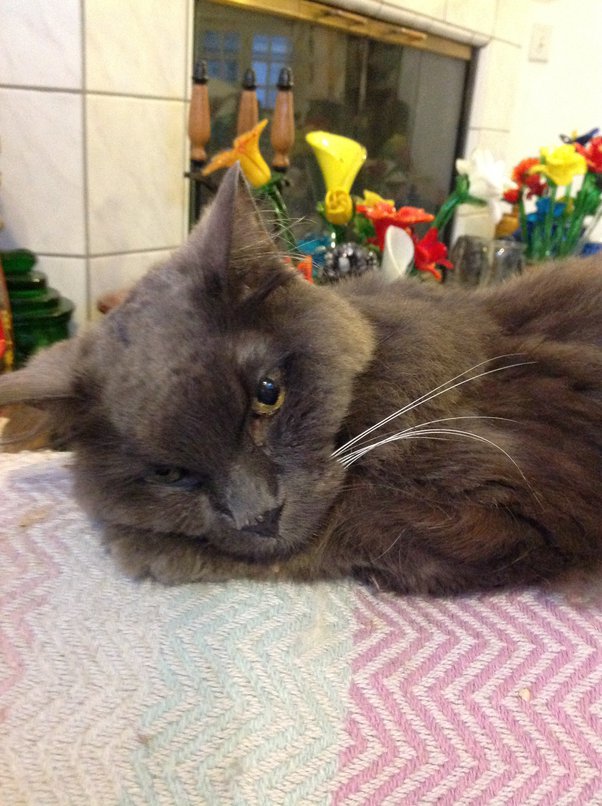What is the downside of having cats as pets?
 I understand this may not resonate with everyone in this audience, but a lot of us have been there, and probably we will be again before our own time comes to be put out of our misery. Still, as we might expect for people with high levels of empathy, many of our readers are also animal lovers of various types, plus being dedicated environmentalists. I call them ecoanimalists. I think therefore this story will resonate with many, especially since, given our age profile, tending to the 50+ crowd, more and more are living with companion animals, usually cats. Incidentally, many revolutionary leaders, including Lenin, have been cat lovers.
I understand this may not resonate with everyone in this audience, but a lot of us have been there, and probably we will be again before our own time comes to be put out of our misery. Still, as we might expect for people with high levels of empathy, many of our readers are also animal lovers of various types, plus being dedicated environmentalists. I call them ecoanimalists. I think therefore this story will resonate with many, especially since, given our age profile, tending to the 50+ crowd, more and more are living with companion animals, usually cats. Incidentally, many revolutionary leaders, including Lenin, have been cat lovers. There is one major downside.
This is one of my cats:
This is Bunny, who got her name because when she was a tiny kitten—and she was a VERY tiny kitten— she resembled a "dust bunny," one of those lumps of grey dust that you find under a heavy piece of furniture that you can't easily get under to dust. Bunny matured to a whopping 6.5 pounds as an adult.
Because she was so small, she was always at or near the bottom of the "peck order" of my multi-cat household. This meant that she was always something of an elusive presence— slipping out of the way of the bigger cats, or perched somewhere high up out of the way, or just a quick flash of grey tail slipping around a corner or under the bed or disappearing down a hallway.
That didn't mean she wasn't affectionate. Many mornings I was awakened by the soft "whuff, whuff" of her sniffing my face nose-to-nose as she crouched by my pillow. "Good morning, Bunster," and a hand reaching out to softly stroke her incredibly soft fur would be rewarded by a very warm purr and a soft "miaow," and she'd stay on the pillow until one of the other cats jumped up on the bed. Then she'd slip away. But she was always up for being petted as she sat on top of the cat condo or perched on a windowsill. Really a sweet, shy little girl.
January of 2017, I noticed that she was losing weight. She was 13 years old, and my experience is that a lot of things can start to go wrong with cats at that age. So I took her in to the vet.
Nothing obvious presented, so my vet drew blood. The result revealed an elevated white blood cell count. My vet ticked off all of the possibilities, and suggested we try a round of antibiotics because the most obvious possibility was that Bunny had an infection of some kind.
For all that she was a tiny thing, and her weight was about 6.2 pounds by this time, she was a tiny tiger when it came to medication.
Twice a day we fought the battle. Sometimes it seemed more of the liquid amoxicillin ended up on me than in her. Bunny got pretty good at figuring out the signs that I was looking to give her medicine, and there was a lot of hide-and-seek and sneaking up on her to get the medicine into her. She'd hide if she could, fight if she must; but she bore no grudges. She still jumped on the bed early in the morning to say good morning. She'd let me caress her, she'd even give me a "kitty kiss" with her raspy little pink tongue, and purr. Always the purr.
The antibiotic treatment ended in February; Bunny and I were both thankful. She seemed perky, her appetite was good, her eyes were bright, she was the lithe and graceful athlete she'd always been. She in no way acted like a sick cat, or a cat in discomfort.
But the weight loss continued: slowly, inexorably. Back to the vet in late June.
Another blood panel. The white cell count was double what it had been in January; Bunny's weight was just below 6 pounds now. The vet and I discussed the results, and in that conversation the "C" word figured prominently. CANCER.
There were no palpable tumors, but the vet suggested an ultrasound. I agreed.
The result was grim: there was a tumor "the size of a kumquat" associated with Bunny's small intestine and several smaller nodules. The vet told me that without a biopsy or tissue section from an excised tumor, they could not give a definitive diagnosis of cancer, but….
How obvious does something unsaid need to be for it to be undeniable? When you love an animal, you don't want educated guesses, or highest probabilities, or all the evidence points that way. You want to KNOW. You want to fight.
I asked the vet: What would you do if Bunny was your cat? Because at that point, even with the weight loss, Bunny was still behaving like a cat that was enjoying life: eating heartily, cleaning her fur, basking in the sun, sweetly greeting me in the morning with a purr that never changed. I didn't want Bunny to lose even a minute of whatever time we had left, not as long as she still got enjoyment out of life.
Vet's answer was immediate: if Bunny was her cat, she'd operate to remove the largest tumor, which would eventually lead to a bowel obstruction. They could also observe the extent of the spread of the tumors throughout her abdomen.
There was a risk; if the tumor had infiltrated her liver, she might not tolerate the anesthetic, although her blood panel showed good liver function at that point. There was also the chance that if the extent of the tumors was such that there was involvement with other organs, they might have to euthanize her on the operating table. This had happened with one of my other cats.
But we would know what we were dealing with. We would know.
I gave the go-ahead, and two days later we did the surgery. By this time, Bunny's weight was down to 5.5 pounds.
I waited by the phone while I knew the surgery was going on. Worst case would be the call asking for permission to euthanize.
That call didn't come; instead came the call that Bunny had come through the surgery fine, they had removed the largest tumor and had documented the extent of the tumors throughout her abdomen. The pathology report would be in within the next day or so, and then we'd know exactly what we were dealing with.
When can I come and get her?, I asked.
Tomorrow, the vet said.
We had to prepare a "hospital confinement" place for Bunny to stay until the stitches came out. Call it hospital confinement, it's a cage by another name. But we had to confine her to give her the best chance to recover, so we set up the cage
I spent a lot of time over the next days, sitting or lying beside the cage, my fingers poking through the bars, Bunny snuggled up close by, breathing into my hand, and purring quietly. She wasn't happy about the cage, we could tell that, but if I was there with her, she was quiet.
The pathologist's report confirmed what we really already knew. Bunny had cancer, and it had spread; there was some infiltration of the liver, the abdominal walls had growths, but we'd cleared the biggest growth from her intestines. She ate ravenously when she came back from the vet, and aside from not liking to be caged, she was acting reasonably comfortable.
Her weight, post-surgery, was just over 5 pounds.
So what do we do now?, I asked the vet at the appointment where the surgical staples were removed.
Steroids. Keep her eating. Enjoy the time you have left.
How much time? I asked.
She'll tell you, the vet said. You'll know.
So we let Bunny out of the cage. Bunny was a hostage now to cancer, and every morning that she greeted me with a soft "whuff, whuff " and a purr at my pillow was a gift.
She spent the summer basking in sunbeams, enjoying the special treats I fed her, spent time in my lap and in my arms, spent time doing cat things and showing no signs of the thing that was eating her insides up, except that she continued to lose weight.
At the end of November, we saw a change. She had been getting visibly weaker. She had needed help to get up on her favorite perches, and we had to get a set of "kitty stairs" so she could get onto the bed to say good morning to me. But she had not evinced discomfort; her eyes were still bright, she still kept purring and though she spent more time just being quiet, it wasn't lassitude of sickness. More like she was resting, gathering what strength she had left.
By the first week in December, I knew we weren't going to get another Christmas together. During the year, Bunny had passed her 14th birthday. Precious years, now the end was coming
 When you have been privileged to have such a tender, furry wraith as Bunny share her life in its entirety with you, there is one final, terminal obligation that that gift of a life brings. When you know the end is inevitable and that it will bring suffering, and there's nothing that you can do to make things better, you know what you have to do.
When you have been privileged to have such a tender, furry wraith as Bunny share her life in its entirety with you, there is one final, terminal obligation that that gift of a life brings. When you know the end is inevitable and that it will bring suffering, and there's nothing that you can do to make things better, you know what you have to do.
In the morning we were at the vet's when they opened at 7:00 AM. The vet was expecting us.
Right to the last, with my head close to her and my tears falling, she purred. And then, mercifully, she was gone.
And that's the downside of "owning" a cat: that it ends.
—KC
Thank you for visiting our animal defence section. Before leaving, please take a moment to reflect on these mind-numbing institutionalized cruelties.
 The wheels of business and human food compulsions—often exacerbated by reactionary creeds— are implacable and totally lacking in compassion. This is a downed cow, badly hurt, but still being dragged to slaughter. Click on this image to fully appreciate this horror repeated millions of times every day around the world. With plentiful non-animal meat substitutes that fool the palate, there is no longer reason for this senseless suffering. And meat consumption is a serious ecoanimal crime. The tyranny of the palate must be broken. Please consider changing your habits and those around you in this regard.
The wheels of business and human food compulsions—often exacerbated by reactionary creeds— are implacable and totally lacking in compassion. This is a downed cow, badly hurt, but still being dragged to slaughter. Click on this image to fully appreciate this horror repeated millions of times every day around the world. With plentiful non-animal meat substitutes that fool the palate, there is no longer reason for this senseless suffering. And meat consumption is a serious ecoanimal crime. The tyranny of the palate must be broken. Please consider changing your habits and those around you in this regard.
[premium_newsticker id=”211406″]





